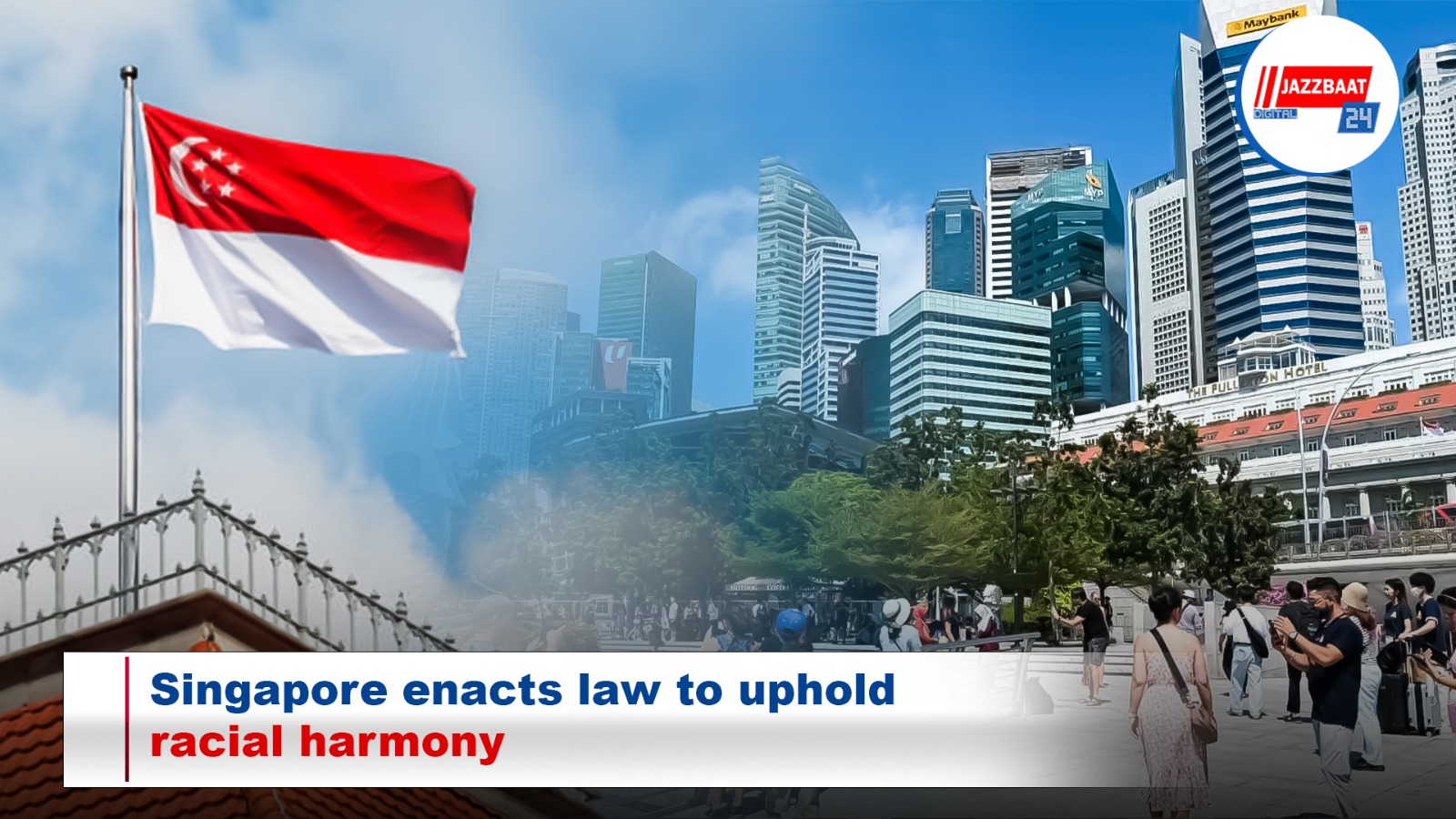A new law that consolidates existing laws to preserve racial harmony and safeguards against foreign interference has been passed in parliament.
New safeguards against foreign interference in multi-racial Singapore where 300 clan and business associations will be designated as “race-based entities” and will have to disclose if they receive foreign donations. The law was passed yesterday.
While authorities already had powers to deal with conduct that threatened racial harmony, Home Affairs and Law Minister K. Shanmugam said the bill brings these powers together in one place and reaffirms the importance of racial harmony in the multi-ethnic city-state.
The new law empowers the authorities to issue restraining orders against individuals who make content that prejudices Singapore’s racial harmony, based on the existing Maintenance of Religious Harmony Act (MRHA).
It also introduces a community remedial initiative that gives those who have committed less serious race-related offences a chance to repair community ties instead of being prosecuted.
“We have always treated racial harmony as being fundamental in Singapore, and so this bill has to be seen in that context,” Shanmugam said. “Multiracialism, underpinned by racial harmony, is a founding principle for us,” local media reports the Minister as saying in the house.
During the debate on the bill, Shanmugam sought to allay fears that the changes would curtail free speech. MPs had raised concerns that the Government’s new power to issue restraining orders would stifle legitimate discourse and asked for clarification on scenarios where this power would be used.
Minister Shanmugam said the best evidence of how these powers will be used is how the Government has used similar powers it has had since the MRHA was enacted in 1990. No orders have been issued under the MRHA to date, but the legal framework means everyone knows what is not allowed in Singapore, he added.
“That gives you an indication of how the Government approaches these powers. The important thing is to have the powers, but also to be very, very careful and judicious in how you use them,” he said.
He cited a previous case where a preacher made highly disparaging remarks about Buddhism and Taoism on YouTube. Officials spoke to the preacher and he agreed to withdraw his remarks.
“We didn’t need to issue an order… the fact that we had the power helped, and after that, others took reference from that (case),” Shanmugam said.
Shanmugam said the scope of what is not allowed remains broadly the same, as the new law covers what is already in the Penal Code. He cited online comments that say “Palestine to be free” and said those are not calls to violence here but opinions.
He replied: “Acts that don’t breach existing racial harmony laws will not be offences. But there are other laws on protected places and public assemblies.
“I would suggest you read (the Bill) carefully. Otherwise, the public may be misled,” he said.
He said there are safeguards beyond the minister who issues the restraining order. “Application has to be sent to a new Presidential Council for Racial and Religious Harmony. They will recommend to the President whether to confirm, cancel or vary the order.
“I agree entirely that Singapore must be open. The message from government leaders here for the last 60 years is that Singapore must be open and interact with the world.
But it also means that clan associations can be vectors of influence from countries that want to influence Singapore’s politics,” he said.
The authorities have engaged many race-based entities here and they understand and accept the need for such safeguards, said Shanmugam. “Not to curtail legitimate exchanges, business deals or trade promotion activities by our clan or business associations. But to safeguard against malicious foreign influence,” he added.
